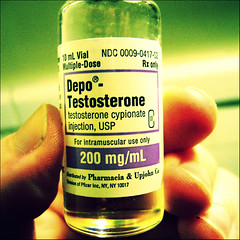 If anything positive came from the debacle that surrounded the International Association of Athletics
If anything positive came from the debacle that surrounded the International Association of Athletics
Federation’s attempts to ‘determine’ South African runner Caster Semenya’s sex, it is that it brought to light the crude methods that were being used to enforce the male/female binary in sports (See David Zirin and Sherry Wolf’s article in the Nation for critical coverage of the initial controversy).
Two years later the International Olympic Committee and the International Association of Athletics Federation, the governing body for track and field, have released a new policy to regulate athletes whose sex development is considered unusual to avoid a repeat of the nightmare that Semenya faced.
In a recent editorial in the The New York Times, Alice Dreger, professor of clinical medical humanities and bioethics at the Feinberg School of Medicine at Northwestern University, provides a critical read of the new policy. Dreger explains that initially the policy seems like an improvement because:
The new policy no longer allows any room for a simplistic “I know it when I see it” approach to who counts as a female athlete.
The new system relies on setting the ‘appropriate’ levels of functional testosterone a female athlete should have. However, as Dregger argues, this policy is fundamentally sexist. Both men and women naturally produce testosterone.
Yet despite the fact that testosterone belongs to women, too, the I.O.C. and the I.A.A.F. are basically saying it is really a manly thing: “You can have functional testosterone, but if you make too much, you’re out of the game because you’re not a real woman.”
Dregger explains that men are free of any equivalent biochemical policing and can take full advantage of any ‘mutation’ that gives him an advantage. In efforts to create ‘the mythical level playing field’ the committee has taken another step in a now rich history of controlling and categorizing women’s bodies. For women athletes who have more functional testosterone than is considered appropriate for a female the only option is to “submit to being made sexually ‘normal’ through hormone treatments” or they cannot compete.
While Dregger is sympathetic to the difficulties that I.O.C. and I.A.A.F. face, she finds little progress in the decision
this newly proposed biological reduction of women to a hormonally disadvantaged class of people — one medically made disadvantaged, if necessary — struck many of us as regressive from the standpoint of women’s rights. Indeed, it reminds me of those itty-bitty shorts that college women’s volleyball players must wear. They each sexualize the bodies of female athletes as a requirement of play. They each insist that a woman never be manly.
Perhaps the biggest take away point from Dregger’s article and the debates surrounding how to define and separate male from female in the sporting arena is that:
There is no perfect solution, one that is reasonably objective, universally applicable and universally satisfying.

Comments 1
:] — May 1, 2011
Sexism is defined as "discriminatory on the basis of sex." By allowing these competitions and the Olympics to be still separated by sex/gender is sexism.
We don't need to test hormonal levels. We don't need to test genders. We should be just testing if they're using illegal drugs that give an unfair advantage. Otherwise, the only non-sexist way of dealing with the problem is to allow universal competition, and leave the only factor to be personal merit and hard work.